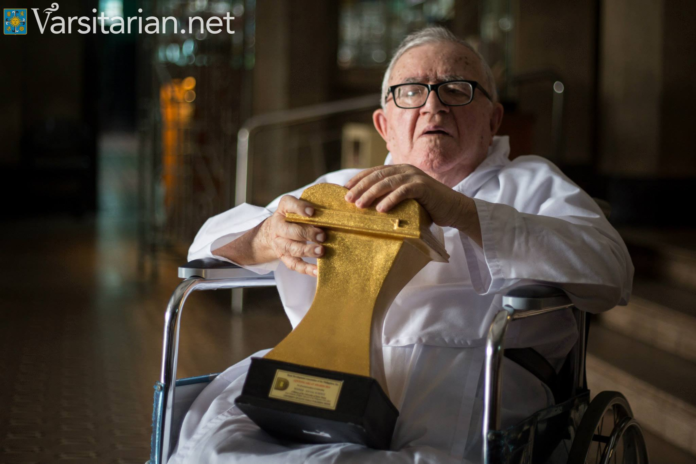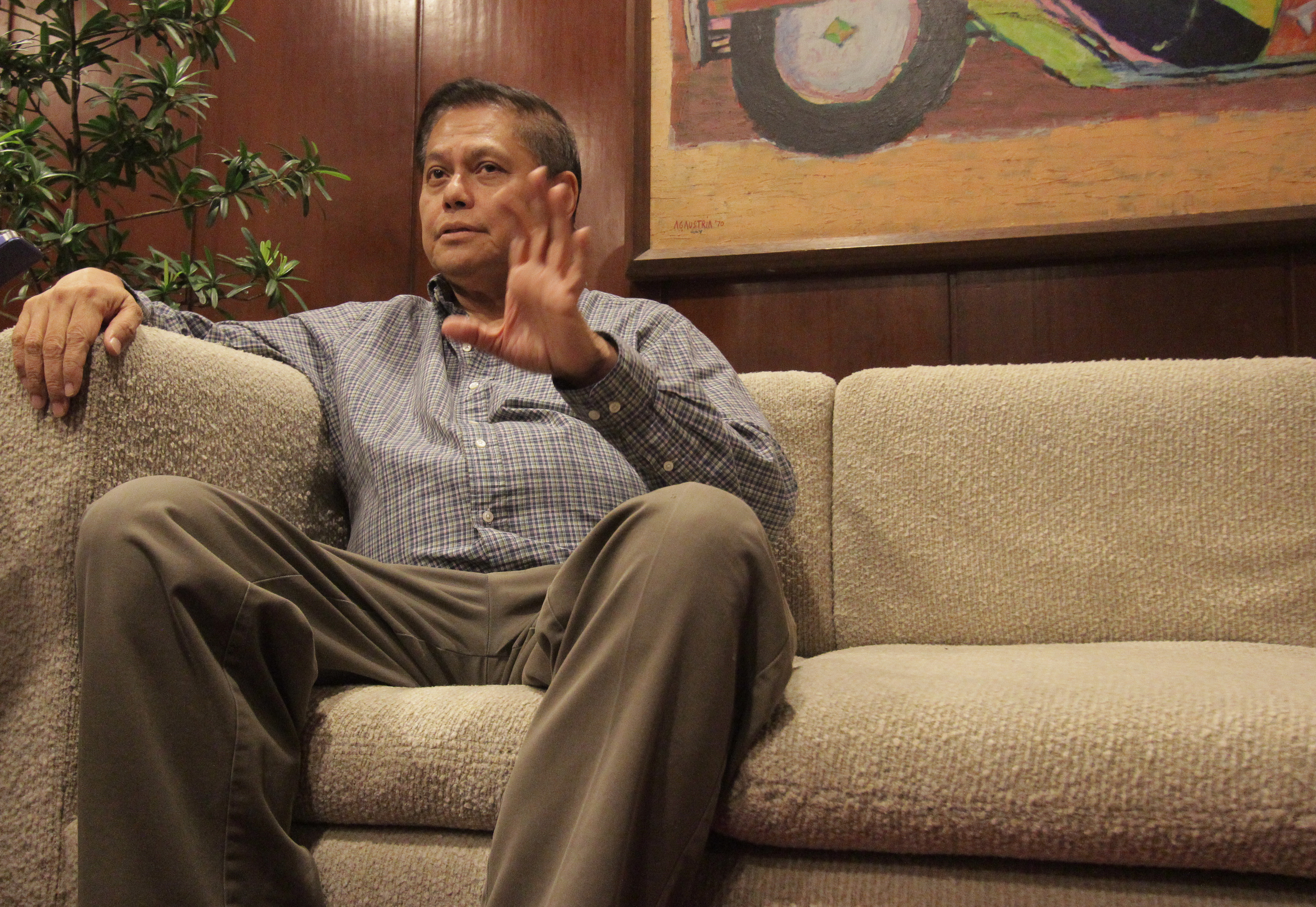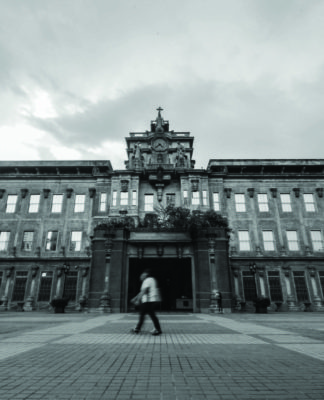ACCLAIMED historian Fr. Fidel Villarroel, O.P. is known for his intellect and gentle manner, and will always be remembered for giving the University its “institutional history,” former students and colleagues told the Varsitarian.
The prior of the Priory of St. Thomas Aquinas, Fr. Rolando Castro, O.P., once a student of Villarroel, said the Dominican historian’s death was a challenge for budding historians to continue his work.
“There’s only one Father Fidel but if we will do our work well as historians, as Dominicans, then his memory is not wasted,” Castro said in an interview.
Prof. Eloisa de Castro, who teaches history at the Faculty of Arts and Letters and was chief editor of Villarroel’s book “The University of Santo Tomas: Four Centuries of Higher Education in the Philippines,” said Fr. Villarroel overturned the established historiography.
“His works alone are enough to change the way people look at not just UST but Philippine history, as the information he had given would generate discussions and debates among historians,” de Castro said in an interview.
De Castro said William Henry Scott, an American historian known for his work on Philippine pre-Hispanic history, once praised Fr. Villarroel for his “extremely fine historical research.”
“Every page is loaded with information that it is a delight to read,” de Castro said, quoting the renowned historian.
Department of History Chairman Augusto de Viana credited Villarroel for shedding more light on the lives of the country’s heroes, including Jose Rizal.
Villarroel’s research on Rizal’s scholastic records from Ateneo de Manila and UST, all found in the UST Archives, showed that the national hero was not discriminated against in UST.
“He clarified the lives of our national heroes Rizal, Mabini, del Pilar, even Fathers Burgos and Zamora kasi all of them are alumni here and he had access to their records,” de Viana said in an interview.
Sr. Corazon de Leon of the UST Hospital Pastoral Care Service thanked Villarroel for writing the history of her congregation.
“Siya ang gumawa ng history ng congregation namin, the Religious Missionaries of St. Dominic. Brother talaga siya sa amin, a brother and a father, at the same time, lolo namin,” de Leon said in an interview.
“Worthy of emulation”
For de Castro, Villarroel’s death marked the end of an era of great Dominican historians. Villarroel, she said, is “very much worthy of emulation” as he set an example to all of his students and colleagues.
“Fr. Villarroel ministers to the needs of the people. The Dominican Order is so fortunate to have him during all this time,” she said.
De Viana considers Villarroel an “inspiration for allowing me to see history from the other side.”
“He was never idle and always writing. He was unselfish [and] willing to help. Our job is to imitate his virtues. He was always humble, willing to take judgement from others,” he said.
Saint-maker
Villarroel, 87, passed away last Oct. 23. at UST Hospital following multiple organ failure. His remains were laid to rest at the Santuario de Santo Cristo, a church administered by the Spanish Dominicans in the Philippines.
He is credited for writing the historical research that led to the canonization of the first Filipino saint Lorenzo Ruiz in 1987 together with 15 other Dominicans martyred in Japan.
Villarroel was ordained priest in 1953 and was assigned to the Philippines in 1957, where he served as UST’s archivist for almost 50 years. He headed the University’s Spanish department from 1957 to 1966 and from 1968 to 1981.
In 2009, the Dominican Order named Villarroel a Master of Sacred Theology, a title revered by the Do minicans and held by the founder St. Dominic de Guzman himself.
Villarroel authored 23 books and 65 articles on theology and the histories of UST, the Philippines and the Catholic Church.
His two-volume masterpiece “A History of the University of Santo Tomas: Four Centuries of Higher Education in the Philippines,” published in 2012, earned him the Gintong Aklat Award.
In 1984, Pope John Paul II granted Villarroel the Pro Ecclesia et Pontifice or the Cross of Honor Award – the highest distinction bestowed on the laity by the papacy.
The Spanish government awarded him the Cruz de Isabel la Catolica award in 1985 for his works that exemplified relations between Spain and the international community.

















